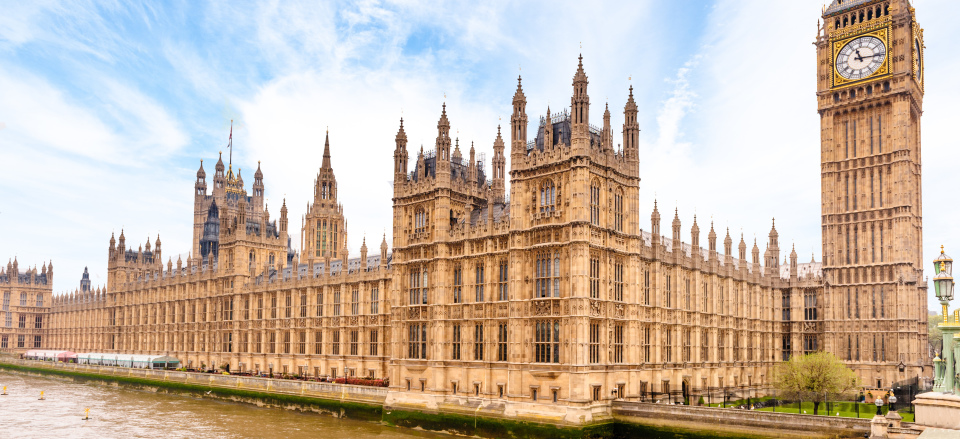Top housing takeaways from the Spring Statement
Chancellor Philip Hammond delivered the 2019 Spring Statement in the House of Commons on Wednesday. We've sifted through the detail and picked out the main announcements that impact housing.
1. Funding for 37,000 new homes
Hammond announced plans to use £717m from the £5.5bn Housing Infrastructure Fund to unlock up to 37,000 new-build properties at sites including Old Oak Common in London, Didcot, Cambridge and Cheshire.
Money from the fund is given out to local authorities in the form of a grant and is used to provide the infrastructure that is needed to enable developers to get planning permission for sites.
While the funding is good news for these communities, it is likely to be a while before it leads to new-build homes becoming available to buy or rent, as the money is used at the very start of the development process.
2. Support for 30,000 affordable homes
The Government will guarantee up to £3bn of borrowing by housing associations in England to support the delivery of around 30,000 affordable homes.
The money, available via the Affordable Homes Guarantee Scheme, should enable affordable housing providers to boost their output through lower borrowing costs.
While the move is obviously good news for the affordable homes sector, the 30,000 properties the scheme will help to deliver is only a fraction of the Government’s target of having 300,000 new properties built across the UK every year.
3. More properties for Oxford-Cambridge Arc
A further £445m is being unlocked from the Housing Infrastructure Fund to unlock more than 22,000 homes in the Oxford-Cambridge Arc.
Further details on how the money will be used were not given, but it is likely to be spent on providing the infrastructure that is needed to enable housing developments to go ahead.
Housing affordability pressures in the Oxford-Cambridge Arc have intensified in recent years as the output of new homes has failed to keep pace with the creation of new jobs.
It is hoped that these pressures can be eased through building more properties to meet the growing demand.
The Government has previously committed to building one million new homes in the Arc by 2050.
4. Small builders lending scheme to launch
Hammond confirmed that the previously-announced scheme to support smaller house builders would be launched next month.
Under the scheme, which was first announced in last year’s Budget, the Government is providing £1bn of guarantees to support lending to small and medium-sized house builders through the British Business Bank.
It is hoped that the scheme will help to boost housing supply by enabling more small-scale sites to be developed through lowering funding costs for smaller house builders.
5. Planning permission reform
The Government announced plans to introduce new planning guidelines in the coming months to support housing diversification on larger sites, after a report by Sir Oliver Letwin concluded greater differentiation in the types and tenures of housing delivered on these sites would increase building rates.
A package of reforms will also be introduced allowing greater change of use between premises and a new permitted development right for existing buildings to be extended upwards to create new homes.
Finally, a green paper will be published detailing proposed improvements to accelerate the planning process.
MPs call for law change to protect leasehold homeowners
The law should be changed to protect leaseholders from being exploited by developers who are using them as a “steady source of profit”, a committee of MPs has said.
The MPs warned that some developers had imposed onerous ground rents, which doubled every 10 to 15 years, on the owners of new-build leasehold houses and flats, leaving them unable to sell their homes or remortgage.
Homeowners with a leasehold only have the right to occupy their property for a set period of time, and they do not own the building outright.
Other issues identified by the Housing, Communities and Local Government Committee included high service charges and one-off bills, unfair permission charges, the alleged mis-selling of leasehold properties by developers and unreasonable costs to buy shares of the freehold or extend leases.
The report said: “Too often, leaseholders - particularly in new-build properties - have been treated by developers, freeholders and managing agents, not as homeowners or customers, but as a source of steady profit.
“The balance of power in existing leases, legislation and public policy is too heavily weighted against leaseholders, and this must change.”
What recommendations has it made?
The Committee has called for the Competition and Markets Authority to investigate mis-selling in the leasehold sector and make recommendations for appropriate compensation.
It has also suggested making commonhold - the freehold ownership of homes within a development - the primary model for flats in England and Wales, and ending the practice of selling houses on a leasehold basis.
Other proposals include:
- Introducing standardised key features documents at the start of the sales process making clear what the tenure of the property is, the length of the lease and any ground rent or other fees.
- Limiting ground rents on existing leasehold properties to 0.1% of a property’s value, up to a maximum of £250 per year.
- Setting ground rents on new leases at zero.
- Introducing legislation to restrict onerous permission fees in existing leases.
- Creating a low-interest loan Help to Buy scheme for leaseholders to enable them to extend their leases or purchase a share of the freehold.
Who does it affect?
Government statistics suggest there were 4.2 million leasehold properties in England in 2015-16, of which two-thirds were flats.
The committee said it had received hundreds of letters from people living in leasehold properties detailing their bad experiences with developers, freeholders and management companies.
It added that many leaseholders had been surprised to learn they did not own their property in the same way as a freeholder.
What happens now?
While the committee has proposed a series of wide-ranging reforms to tackle the problems leaseholders face, there is no guarantee the Government will act on all or indeed any of them.
The Government generally has two months in which to publish its response to a select committee report, but it is not obligated to take up the recommendations.
It has, however, previously expressed concerns about leaseholds, and in October last year, it launched a consultation on imposing a cap on ground rents on new-build leasehold properties and requiring the majority of new-build houses to be sold as freehold.
Top 3 takeaways
1. The law should be changed to protect leaseholders from being exploited by housing developers, a committee of MPs has said
2. The committee has called for the Competition and Markets Authority to investigate mis-selling in the leasehold sector and make recommendations for appropriate compensation
3. It has also suggested making commonhold the primary model of ownership for flats in England and Wales, and ending the practice of selling houses on a leasehold basis


